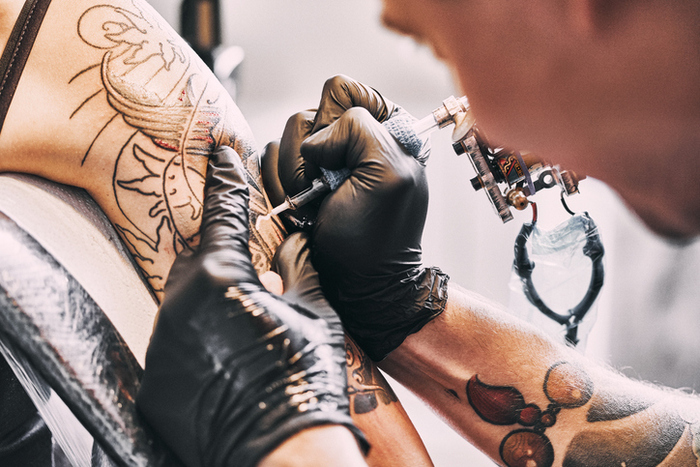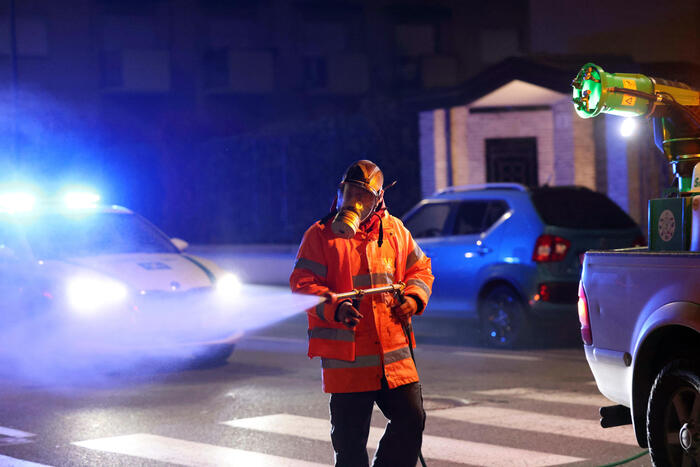Read the video transcript here
This virus has ruled the world for two years.
It's just 100 millionths of a millimeter in size and still creates new waves, lockdowns and overcrowded intensive care units.
How do we ever get out of there again?
There will probably not be a situation like before Corona.
Instead, we need to learn to live with the virus without paying too high a price.
The biologist Christine Falk explains to us in an interview: In order for us to succeed, the pandemic situation has to become an endemic one.
Christine Falk, Hannover Medical School / President of the German Society for Immunology:
»The advantage of an endemic compared to a pandemic would be that the virus still circulates in the human population, but that there are hardly any people who are really seriously ill. And so you have a situation like the one we know from the flu. Here, too, people can get seriously ill, but very, very few, so that one can assume that a virus will continue to circulate, but will neither cause great personal damage nor really cause great harm to society. "
The virus only becomes endemic when a large number of people are immune - either through a vaccination or when they have recovered. The virus would not have disappeared then, but it would no longer be as dangerous for the population as it is now in the pandemic. Because then there are so many infections and thus severe cases that even a health system like the German one reaches its limits. In the endemic, however, the infection curve is much flatter. This means that there are also much less severe cases - and the burden on the health system remains manageable.
In contrast to a pandemic, where Corona spreads worldwide, the virus will appear much more regionally in the endemic phase.
It could even break out only in certain times of the year, or only threaten certain population groups, much like the influenza virus.
These people would then have to be protected further, for example through booster vaccinations.
The mask requirement could also be used again in the meantime in the event of larger outbreaks.
But in principle it is then possible to live
with
the virus without major restrictions.
Some experts now expect that Omikron is the variant that will lead us into an endemic situation because the virus is now spreading faster and - as of now - is likely to lead to somewhat milder courses.
Christine Falk is still cautious.
Christine Falk, Hannover Medical School / President of the German Society for Immunology:
“When we look at how quickly Omikron has been moving since its discovery - on the 24th and 25th of November. November - has now spread worldwide, of course it cannot be ruled out that other variants will appear somewhere else in the world. But Omikron is pretty successful, to put it that way. That is why it may well be that this virus has now accompanied us as the main variant for a while. I don't know whether he will be credited with the fact that this is our way out of the situation. I just don't trust this virus, just like the other variants. «
The transition from a pandemic to an endemic situation is dangerous.
Many millions of people in Germany are still unvaccinated - and thus have a much greater risk of becoming infected.
If you let the virus run free too early, there is a risk of extremely high infection rates - and thus both a danger to the infrastructure and many serious courses and deaths.
This flock of sheep from Lower Saxony makes it clear what is important now: The question of
when
we will make it into an endemic situation depends heavily on the vaccination rate.
To put it simply: the higher the vaccination rate, the faster the endemic occurs.
Vaccinated people can and will continue to be infected, but only in the rarest of cases do they come to the hospital.
Christine Falk, Hannover Medical School / President of the German Society for Immunology:
“If we were able to ensure that people who have not yet been vaccinated, from the age of 5, get vaccinated and get a vaccination, and then we get a high quota - 80 percent of the population as a whole would be great - then we would really have a situation in the summer where it would be realistic - let's say carefully realistic - that they would have low numbers, have more freedom with low numbers and are so well equipped for next winter that not much can happen to us because there aren't that many people who can get seriously ill. "
But: An endemic situation in Germany alone is not a long-term solution to the problem. The vaccination campaign should be successful worldwide, but especially in the Global South, especially in Africa, three problems come together: a lack of vaccine, a partly poor infrastructure and a high degree of vaccination skepticism. If the vaccination rates remain low there, there is a risk that new variants will emerge that can circumvent vaccination protection.
Christine Falk, Hannover Medical School / President of the German Society for Immunology:
“You simply shouldn't forget that there is a stark uneven distribution of vaccines happening at the moment.
And if we don't somehow have a better view of this, then the question is when we can come to a carefree society that no longer has to worry about restrictions, virus threats or infections.
That's a little further away. "
So in the end: Nobody is safe until everyone is safe.
(Animations)






/cloudfront-eu-central-1.images.arcpublishing.com/prisa/LXJQLIHEEJDHBNVN45ZLQLAMJY.jpg)

